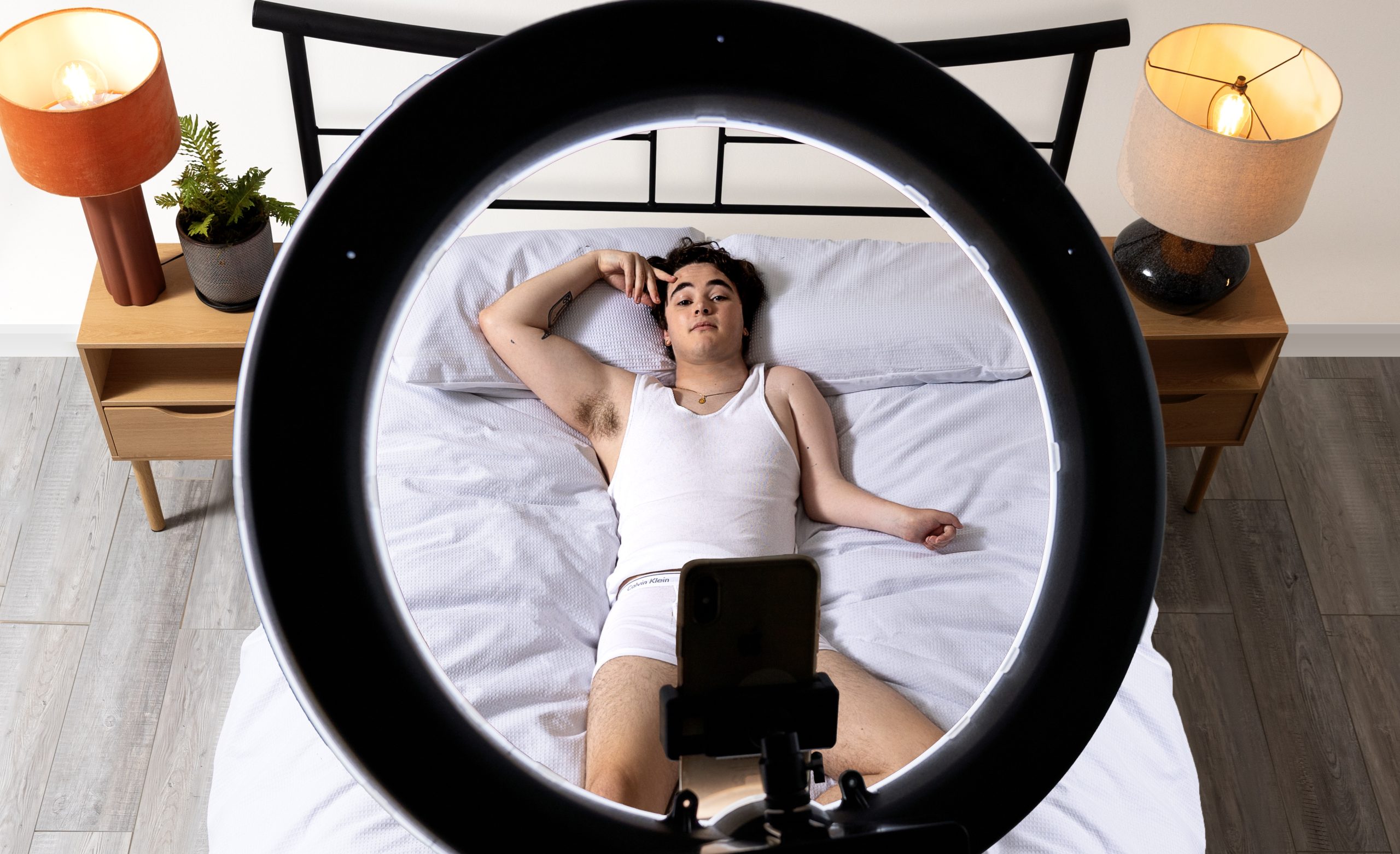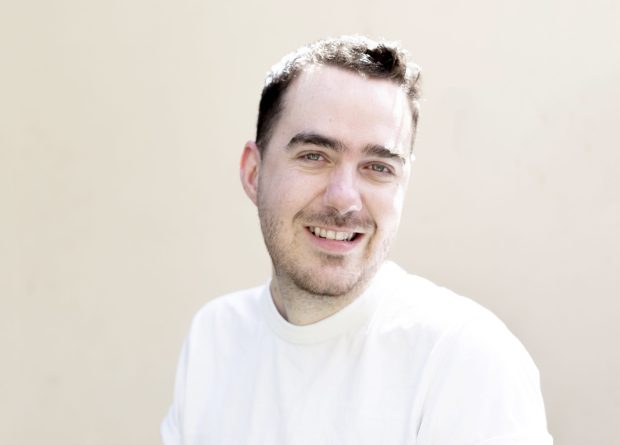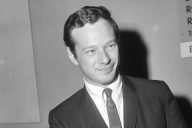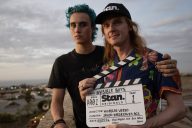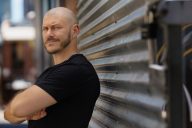Alistair Baldwin has overcome many barriers to becoming a successful comedian and television writer, including credits on The Weekly, Hard Quiz, and Get Krack! n. His debut play Telethon Kid draws from his early life experiences under the focus of the doctor’s microscope.
What inspired you to write Telethon Kid?
Alistair Baldwin: To be perfectly honest, the biggest inspiration for Telethon Kid was my own narcissism. Ironically, it requires a level of super-narcissism for it to be unique and interesting enough that there should be a whole play about it! As a kid born with muscular dystrophy, I was regularly told by doctors that I was fascinating, intriguing and one-in-a-million – the kind of ridiculous things you need to believe about yourself to be a writer.
So, it runs right back to when you were under the spotlight – literally?
Yes, I began to wonder if the intense attention I received from doctors at a young age facilitated all this, in the same way child stars are dosed with intense levels of attention. They often grow into adults still frozen in toxic patterns of attention-seeking and self-aggrandising. I grew up in Perth, where the Channel 7 Telethon is truly one of the biggest events of the year. I was never a Telethon Kid myself, which made me ridiculously jealous. Heaps of my neurologist’s other patients were ‘Little Telethon Stars’ and if you’re a kid with a rare disease, you might as well be a child star for it.
“I think eroticism is an incredible Trojan Horse for a deeper meaning.”
Was that something you truly wanted?
In hindsight, I probably dodged a bullet. While I understand the financial incentive of giving abled folks the old razzle-dazzle in exchange for the pity bucks, we need to be careful about how we talk about kids’ bodies right in front of them. Being born with a disability, I first learned to view my naked body as an intriguing body or a problem to be solved. So, when I hit the age where we all start to worry about our bodies being desirable or fuckable, I still felt the echo of this little pathologised boy in his undies getting his posture inspected by a team of doctors.
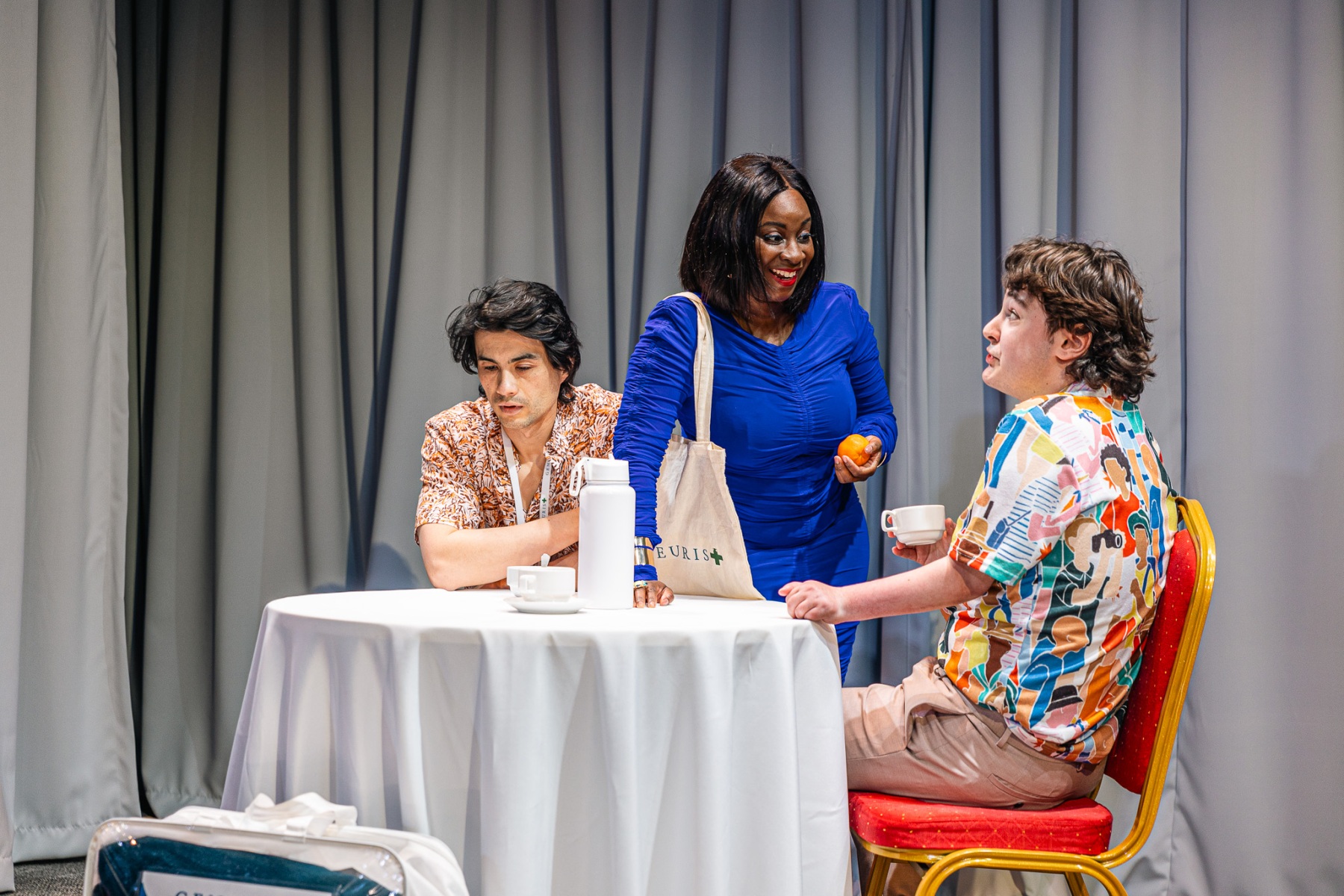
Max Brown and William Rees with Effie Nkrumah in Telethon Kid Photo: Tamarah Scott
What challenges did you face in writing the play?
Honestly, the biggest challenge I faced writing Telethon Kid was the pandemic. I started writing this play back in February 2020 through the Melbourne Theatre Company’s (MTC) Cybec Electric. It’s a program where writers develop and premiere an excerpt from a new play. We did a staged reading of an early version of Telethon Kid that was a roaring success. I was filled with so much excitement and momentum and it came to a complete stop when the first lockdown happened. I hit pause on the play but discovered that people who were otherwise intensely sceptical of multinational corporations started talking about whether they got Pfizer or AstraZeneca with a near-fanatic brand loyalty. By virtue of saving lives, these specific corporations had this kind of halo effect that made them harder to critique than every other kind of corporation.
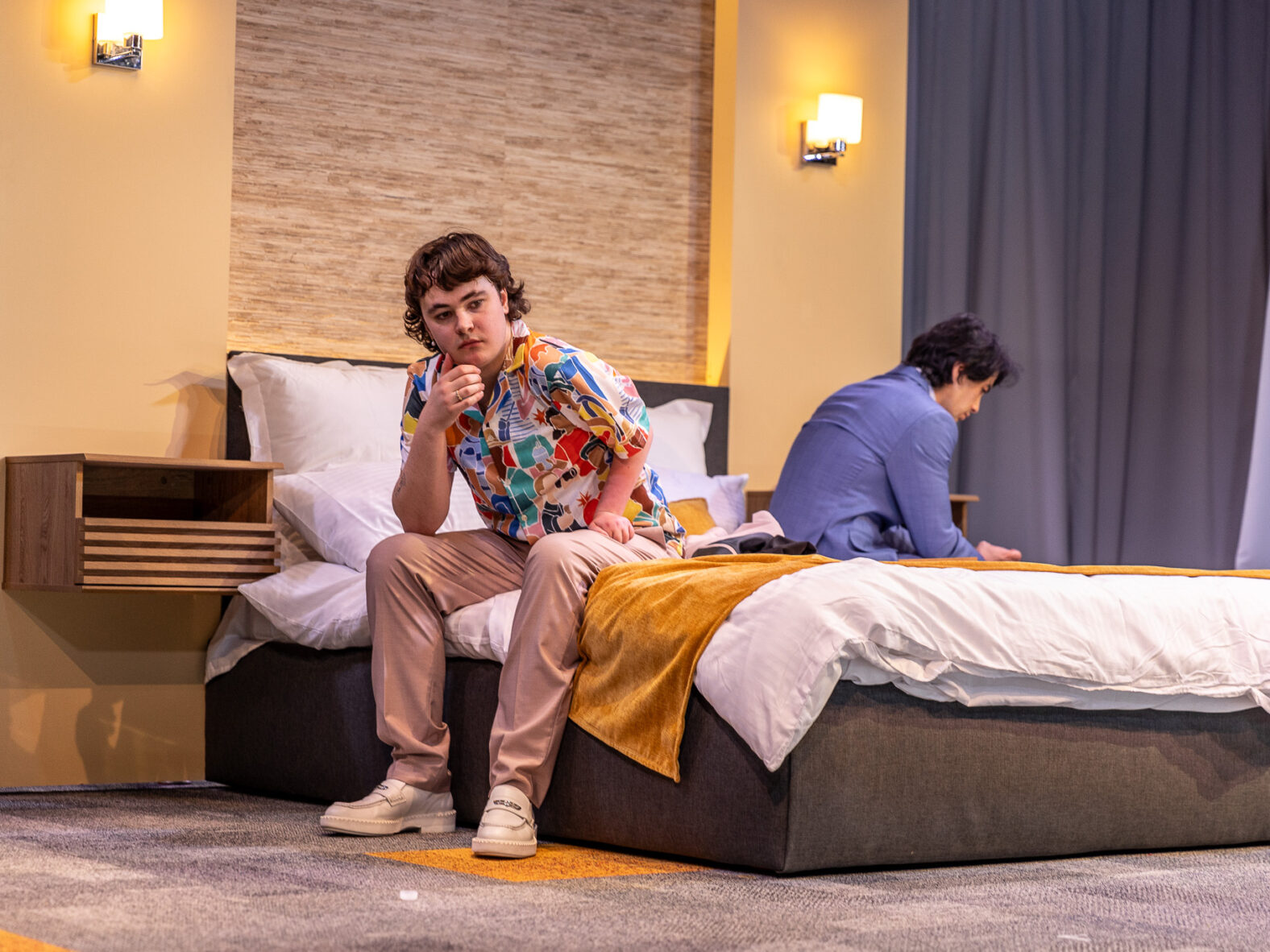
William Rees and Max Brown in Telethon Kid Photo: Tamarah Scott
Was that an influence on your play?
Yeah, when I finally jumped back into writing Telethon Kid, I decided to situate my characters within the machinery of a Big Pharma. That amped up everything I wanted to say about the meeting of medicine and commerce. The whole world’s a telethon, and we are merely the washed-up actors begging people to call the donation hotline.
“I guarantee the characters of Sam and Doc will offer a tantalising and twisted homoerotic journey!”
How do you feel about this piece making it to the stage?
Ecstatic. I mainly work in television, which is intensely collaborative for writers, but I’ve found theatre has swathes of time where the playwright is completely alone with the text. It’s been so invigorating to head into production and work with the incredible creative team at Malthouse Theatre. It’s been amazing, especially with a work like this to discuss the text and themes with brilliant disabled actors like William Rees and Ashley Apap.
Can you explain a bit about the themes of the play?
One major theme I’m drawn to is dehumanisation in the medical system, in all its forms. Obviously, this happens for the sick person and I’m sure anyone who has been poked and prodded at a hospital can relate to the feeling of becoming a Guinea pig. But I’m just as interested in the dehumanisation that occurs in the opposite direction to medical professionals. We put doctors on pedestals, deify them and cast them as altruistic saintly, but in a way that denies them their humanity too. It’s completely human to fuck up, get drunk, slut around and be driven by money or vanity. I think when we talk about being a doctor like it’s a calling’, we imprison humans in this impossible standard. It’s what allows us to work doctors and nurses into the ground, with ridiculous hours with no sleep and no work-life balance.
“I first learned to view my naked body as an intriguing body or a problem to be solved.”
What do you hope audiences will take away from seeing your play?
First and foremost, I’d like them to be turned on – at least a bit! I think eroticism is an incredible Trojan Horse for a deeper meaning. I guarantee the characters of Sam and Doc will offer a tantalising and twisted homoerotic journey to DNA readers! That said, if anyone accidentally buys DNA Magazine because they thought it was literally a magazine about DNA, I also guarantee you’ll walk away from Telethon Kid knowing more about rare genetic disorders!
Follow Alistair on Instagram @baldwinalistair
